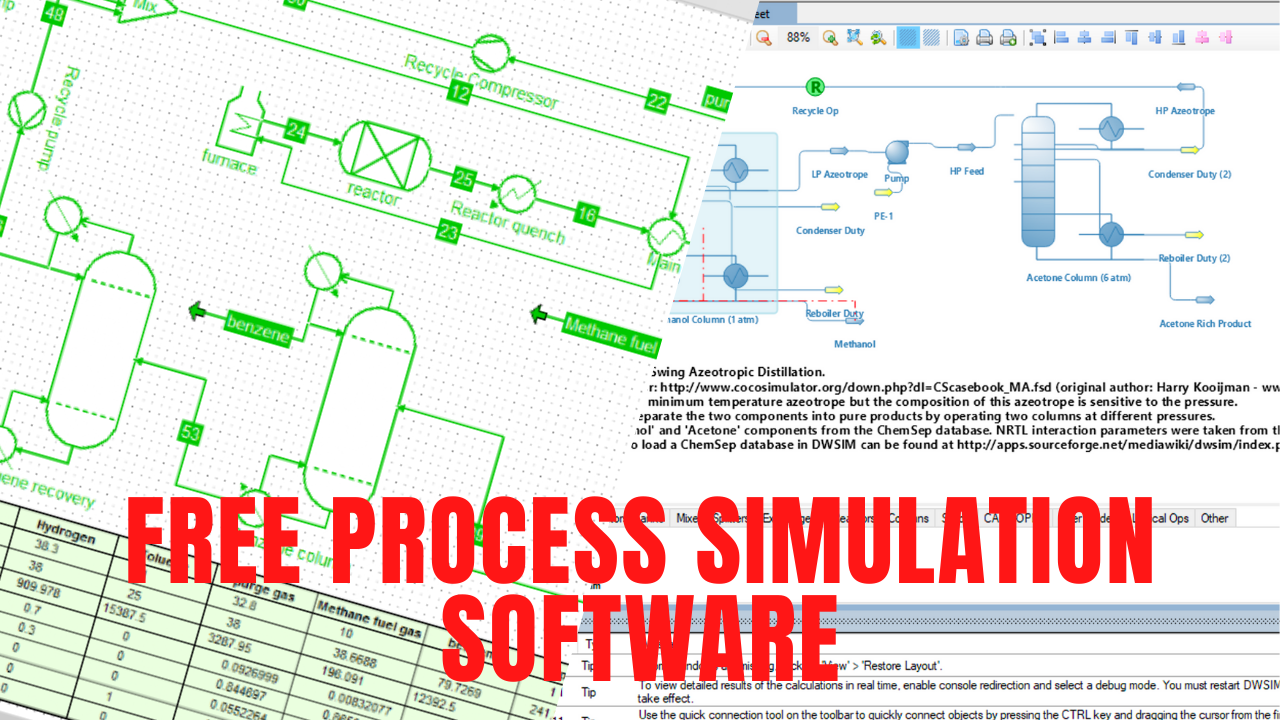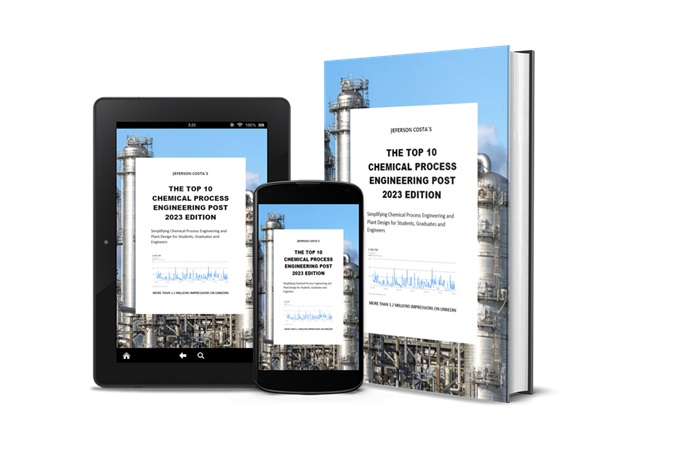You can have a process simulation software to practice process and plant design.
I do not have the numbers, but Aspen Hysys is probably the most known process simulation software for chemical engineering. In a poll I did in my Telegram Channel INPROCESS, 88% of people asked for more content about this software.
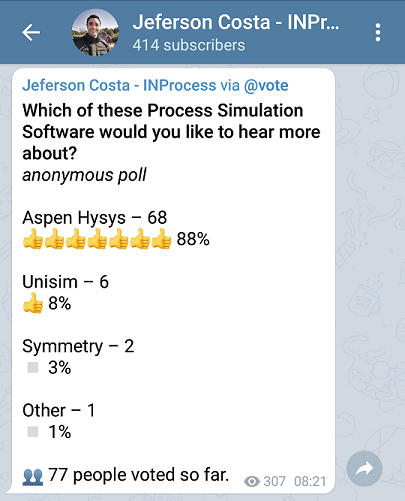
Different than Autodesk, find a commercial process simulation software for training is not an easy task. Most often, you need to go to Universities Labs, learn on the job (if your employer gives this chance to you) or spend some hundred dollars in training to get familiar with the process software.
Yes, I am considering only legal ways to have access to process simulation software. I don´t want to know about your cracked installation. Do not tell me about that.
In summary, commercial process simulation software is expensive (can cost more than 20,000 Usd/year) and with restrictive access as mentioned above. However they are very important in the plant design world because, if well understood and correctly used, they save a lot of time in the calculation of heat and material balance. Because of that, you save time in the development of engineering documents like process datasheets for instruments, equipment and so on.
SOFTWARE STRUCTURE
Although each company has its own design and interface, and some specific features focused in particular demand, the truth is that all process simulation uses the same principals to do chemical process engineering calculation. They need to have a consistent thermodynamic package and a reliable set of equations.
I am not saying that is easy to program this, I am just saying the way it works, and it is the same way you would do the calculation by hand. Remember that Our grandpa did not have computers and software to do plant design.
FREE OPTIONS
If you do not have a commercial process simulation software to practice I will give you two options.
The first one is DWSim, developed by Daniel Wagner. And the second one is Coco, developed by Jasper von Baten. Both software is free to download and use and very similar to Aspen Plus where you need to run your simulation to verify the results.
DWSim also has some exclusive features for Patrons, mobile options and so on, but in general terms, you can use it in your computer without extra content to get familiar with plant design.
As free software, its developers are not able to spend thousands or millions of dollars is the process simulation development. For that reason, it may not have a so easy interface or more complex options than other commercial software. But if you understand how they work you will short your curve of apprentice when learning another process simulation software.
I really encourage you to give them a chance. Start with simple tasks and known results to verify software consistencies and once you go further you can build a more complex process.
Below, you will find softwares description and link to download. Or you can download them from my INPROCESS mentoring channel in Telegram.
Watch Aspen Hysys comparison with DWSim software and COCO.
FREE PROCESS SIMULATION: DWSIM
The description was taken from DWSim website
To download, click here (Windows Platform 64bit) or go to the website for more options.
DWSIM is a multiplatform, CAPE-OPEN compliant chemical process simulator for Windows, Linux, Android, macOS and iOS. Built on the top of the Microsoft .NET and Mono Platforms and featuring a rich Graphical User Interface (GUI), DWSIM allows chemical engineering students and chemical engineers to better understand the behavior of their chemical systems by using rigorous thermodynamic and unit operations’ models with no cost at all.
DWSIM has an easy-to-use graphical interface with many features previously available only in commercial simulators:
- CAPE-OPEN features (Windows): Thermo 1.0/1.1 Property Package Socket, Thermo 1.1 Property Package Server, Unit Operation Socket and Flowsheet Monitoring Object support. Additionally, DWSIM exposes its Python Script (Custom) Unit Operation for all CAPE-OPEN compliant simulators.
- Thermodynamic models: CoolProp, Peng-Robinson, Soave-Redlich-Kwong, Lee-Kesler, Lee-Kesler-Plöcker, UNIFAC, Modified UNIFAC (Dortmund), UNIQUAC, NRTL, Extended UNIQUAC, Chao-Seader, Grayson-Streed, Raoult’s Law, IAPWS-IF97 Steam Tables, IAPWS-08 Seawater, Black-Oil and Sour Water;
- Unit Operations: Mixer, Splitter, Separator, Pump, Compressor, Expander, Heater, Cooler, Valve, Pipe Segment, Shortcut Column, Heat Exchanger, Reactors, Component Separator, Orifice Plate, Distillation/Absorption Columns, Solids Separator, Cake Filter, Excel, Script and Flowsheet Unit Operation;
- Utilities: Phase Envelope, Hydrate Calculations, Pure Component Properties, Critical Point, PSV Sizing, Vessel Sizing, Spreadsheet and Petroleum Cold Flow Properties;
- Tools: Binary Data Regression, Compound Creator, Bulk C7+ and Distillation Curves Petroleum Characterization and Reactions Manager;
- Process Analysis: Multivariate Constrained Optimization and Sensitivity Analysis utility;
- Extras: Scripting System and Plugins Interface.
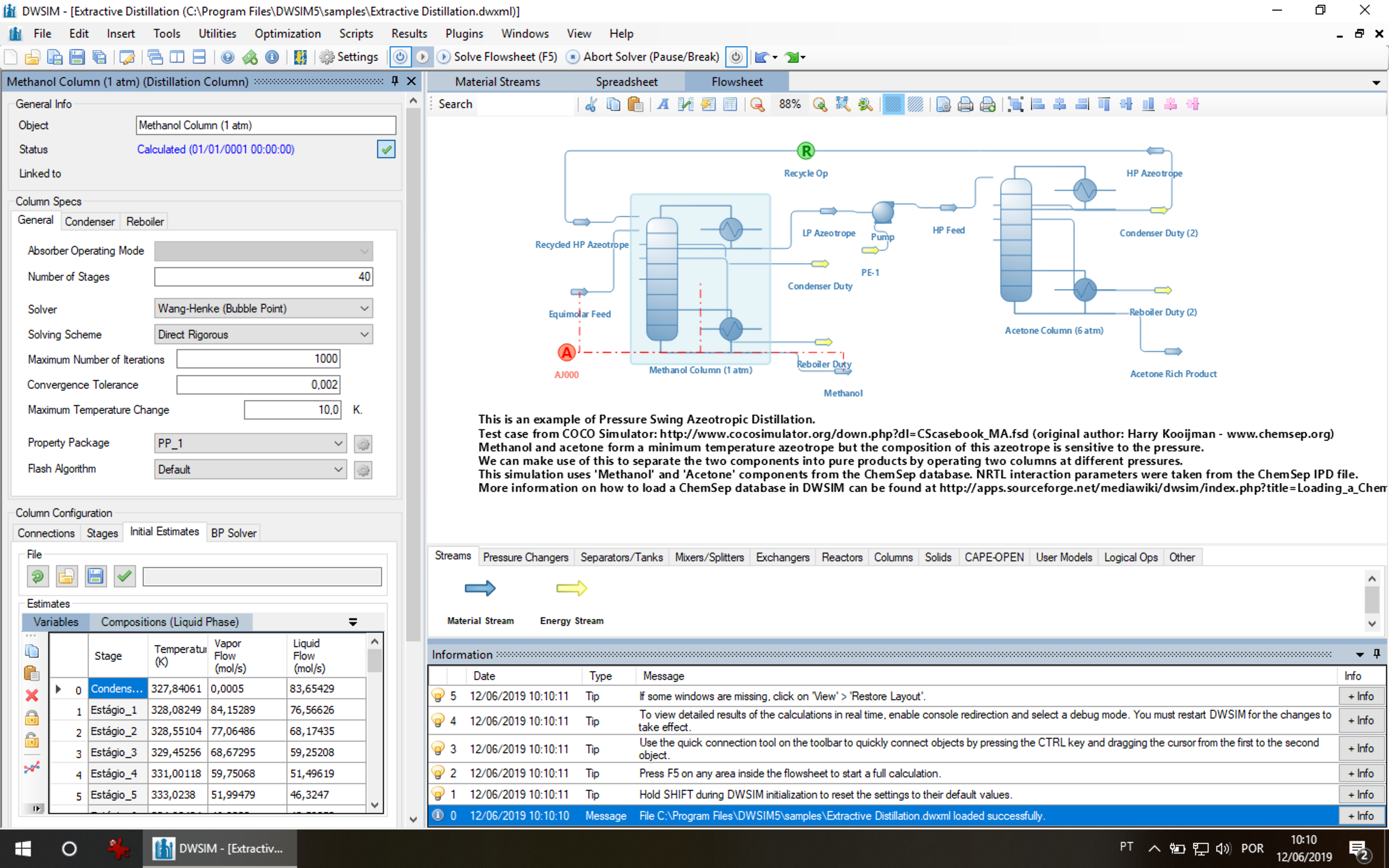
FREE PROCESS SIMULATION: COCO
The description was taken from website
To download, click here (Windows Platform) or go to the website.
COCO (CAPE-OPEN to CAPE-OPEN) is a free-of-charge CAPE-OPEN compliant steady-state simulation environment consisting of the following components:
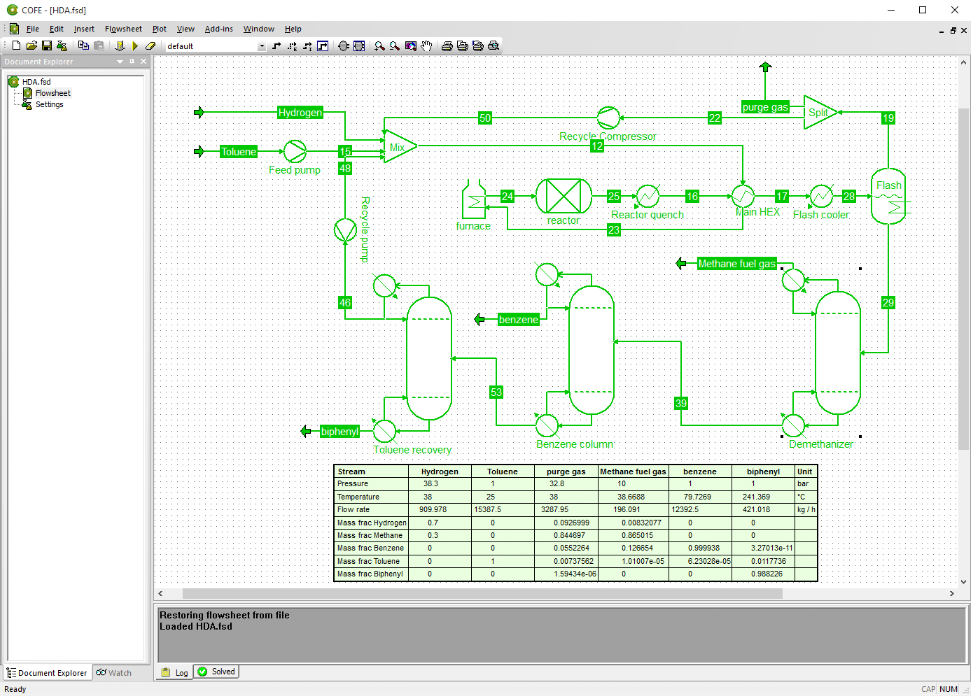
If can know more about chemical process engineering and plant:
Join my free mentoring channel in telegram INPROCESS https://www.jefersoncosta.com/inprocess
Watch videos and tutorials in my YouTube at The Chemical Process Engineer and Plant Design
Join my fan page on Facebook at https://www.facebook.com/inprocessbooster
Connect with me in LinkedIn at https://www.linkedin.com/in/jeferson-costa-process-engineer
